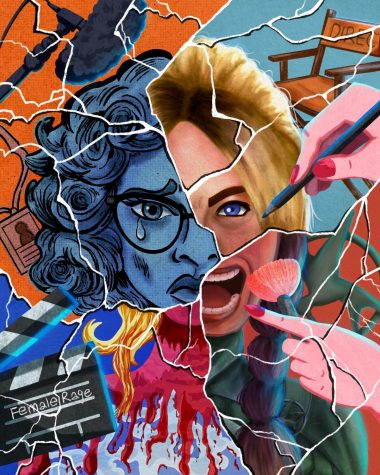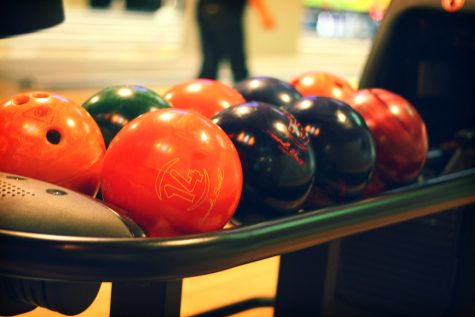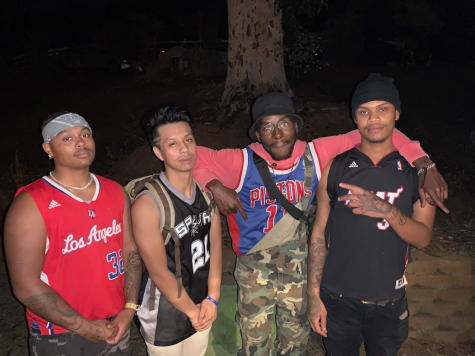How to Read After High School Ruined It For You
High school English classes did two things: inspired me to become a writer and completely obliterated my love of books
Book reports, reading logs, chapter tests, literary analyses; our adventure novels turned into textbooks the moment we brought them to class. It was pulling teeth to get us to actually finish an assigned book, and then the assignments began. Teachers would track my reading tighter than I track my own schedule: how many pages a week was I reading? What was my progress compared to my classmates? Was my book the correct level for my age? Could I regurgitate the plot and articulate the main motifs?
Page counts went up. The classes somehow found an endless supply of the world’s most un-engaging reads. Works written in English started requiring translations of their own. We’d combine forces at lunch and try to summarize, find summaries online, BS our ways through essays and assignments and scrape up a passing grade.
Didn’t we do this for fun at one point?
After sophomore English forced The Scarlet Letter by Nathaniel Hawthorne down my throat — as a summer assignment, no less — I couldn’t bear to pick up a book unless absolutely necessary for an assignment. Gone were the days when I would read two novels a week, love every second of it, and go right back to the library for another one.
The summer after I graduated, I decided to reclaim reading over a 9-hour flight. I picked up two books: The Lost World by Michael Crichton for the trip there, and Wuthering Heights by Emily Bronte for the trip home. Nine hours. I used to be able to knock out a book in a day; I thought it’d be manageable.
I made it three painful pages into The Lost World before realizing a horrifying truth:
I’d completely forgotten how to read a book.
Sure, those were words I knew, but it was the most dreadful thing, opening a book during my free time. Nails on a chalkboard would’ve been more enjoyable. I read the same paragraph four times before I finally recognized what it was saying, I couldn’t make it through a page without completely losing focus, and I absolutely hated what I was doing.
It was through a painstakingly slow, back-to-the-basics process that I taught myself how to read again. I still am nowhere near the level I was in elementary and middle school, but at least now, I can enjoy the reading process and reach that last page.
If school ruined reading for you, too, here’s a gentle guide to introduce yourself to your love of books again.
1. Find your gateway book.
This is the book that gets you addicted — the one you read into the late hours of the night and pick right back up the moment you wake. This is the one you have to find to prove to yourself that reading is still something you can actually enjoy.
Who cares about how quickly you read it, or if you can pull out quotes to support a thesis? Push all thoughts of level and essays and main ideas out of your mind; this is the book you are going to read all and only for yourself.
Here are a few tips for finding that gateway book.
– Know your level. And be honest about it! In seventh grade, I was reading at apparently a college level, but when I decided to get back into reading, I could barely make it through books I’d flown through in middle school.
Don’t go jumping into classics, 900-page war novels or a Charles Dickens “must-read.” Let yourself begin at a lower level. You’re basically about to teach yourself how to read again, so be gentle and realistic about what you can enjoy.
– Explore genres. You’re not in high school anymore! There’s a whole world of books out there that you probably didn’t even know existed. If your go-to middle school book was Harry Potter, great news: there are thousands of magical, fantasy, witches-and-wizards novels out there written for adults. These will be on a whole new level, featuring characters whose struggles will be much more relatable than an 11-year-old boy.
– Figure out what tropes you like. Do you squeal whenever a dark, broody character falls for the human equivalent of a golden retriever? Love the pain of watching a character lose absolutely anything? Are you an enemies-to-lovers fan, or want something with a thick plot full of twists?
Look at the books, stories, movies that you know you love. Figure out what it is about them that you like, and base your search for stories about that. There are novels on everything nowadays. Your gateway book is out there.
If you start a book thinking it’s great and get a few chapters in and hate it, STOP READING IT. You don’t have to write an essay on it when you finish — that’s old news. If you don’t like it, stop reading it and try another one.
2. Set achievable goals and reward yourself for meeting them.
Once you have your gateway book, you have to actually read it. This is the part that does require some self-discipline, but if you’ve found the right story, you should be able to go cover-to-cover without hating what you’re doing.
But if you want to finish a book and even the most exciting story can’t keep you gripped, try setting a very small, very doable goal. Read 30 minutes a day. If that’s too daunting, then read 15 minutes in the morning, 15 minutes at night, or promise yourself to read one chapter a day.
Pick a small goal that motivates you to at least pick up your book every day. It can only be read one page at a time, so work through it one page at a time.
A few tips on meeting your reading goals:
– Always have a book with you. If you prefer ebooks, you’re already there — we carry our phones with us everywhere. Instead of pulling up a social media app when you’re in need of a scroll, download your book on your phone and read a few pages. Get lost for a few minutes.
If you prefer physical books, make sure it’s always with you. When you find yourself itching to pull out your phone, stick your nose in a novel for a few minutes instead. Those little chunks of time will add up quick.
– Try audiobooks! Audiobooks are not a cop-out. It’s not cheating, and don’t let anyone convince you otherwise. Audiobooks allow you to multitask. If you have a commute or work out every day, use that valuable time to read a few pages hands-free, too.
– Find a reading partner or community. Now is the prime time for book communities. With YouTube, TikTok, Instagram and Tumblr, to name a few, readers from around the world are promoting their favorite reads, supporting each other and discussing the ins and outs of stories. Get inspired!
Many of the accounts are extremely aesthetically pleasing, and are excellent for helping you romanticize the reading process that English classes ruined (more on this in step 3). Some tags to search to get started include #booktok, #booktube, #bookstagram, or #studyblr.
When you meet these goals, reward yourself. If you read 30 minutes a day, do, eat, or watch something special. For example, I love having gently-used paperbacks and crisp hardcovers crowding my shelves, but I don’t let myself buy another beautiful book until I’ve finished one.
You know what you want, so pick a reward and save for when you’ve done your readings.
Just make sure you’re not forcing yourself to read. That’s what school was for — but this is reading for you, so keep it casual, no-pressure and enjoyable.
3. Romanticize your reading.
You know those scenes in movies where a character is wrapped up tight in a thick sweater, glasses on with a steaming mug of tea in hand, curled up on a window seat with a book in their hands?
Create that picturesque moment for yourself.
When you’re ready to sit down and read your 30 minutes for the day, take a moment to put on something comfortable, get a nice cup of something to drink, and pick a calm, pretty spot to read. Outside works wonderfully, or in a café or public library, or my personal favorite, by a window in the rain.
Life’s too short to not romanticize the gentler moments in life. Situate yourself somewhere you can get truly lost, and two hours later, you’ll look up from the page, blink, and realize someone needs to let your dog out.
4. Use your new grown-up brain and obsess.
You are a very different person now than you were when you first read The Hunger Games. You now have the mind and life experience to notice yourself loving or hating a book (or any story), so ask yourself why! Really think about the characters, the plot, the message, the setting. Fall in love with it, talk about it, recommend it to everyone you know, find the crappy movie adaptation and love it anyways, unashamedly obsess over how good your gateway book and all the books after it are.
Or, alternatively, if you hate it, figure out why. Figure out what made this book so bad, and add those things to your heck-no list. Write an article ripping it apart because it was just so, so bad.
Book communities are perfect for this. Read the fanfiction if you can’t get enough of the story, check out the amazing fanart, make memes, make TikToks, write meta, theorize about characters — take your reading to the next level. Love what you are reading, for no reason other than loving it, and eagerly dive into the next novel.
5. Finish your gateway book and pick up another one.
That’s about it. You’ve finished a book — smack it shut (or close out of the app with a flourish) and bask in the beauty of having accomplished an entire novel. Then before you’ve come down from that high, pick up your next one and start this all over again.
Throw up a middle finger to high school English, read out of spite, and enjoy every second of it.










